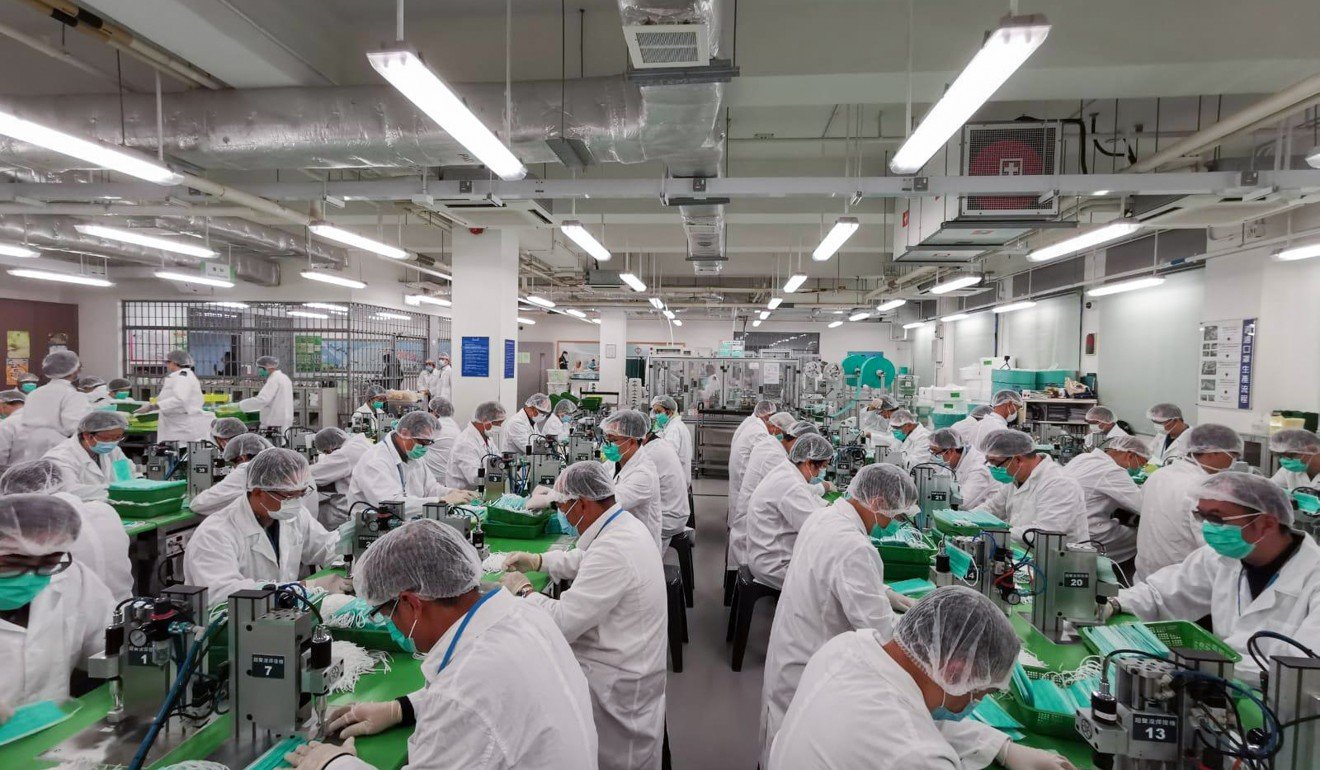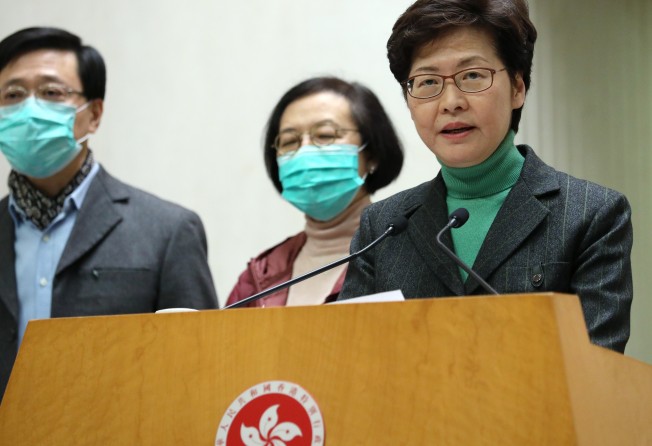
Coronavirus: Hong Kong leader Carrie Lam admits government supply of surgical masks down to its last month but says 48 million more are on the way
- But the chief executive admitted they ‘may not arrive in time given the current situation’
- Lam also confirms new quarantine measures drastically reduced numbers entering the city, as 161 people issued confinement orders on its first day

Hong Kong’s leader has said the government has bought 48 million masks and received 17 million more from mainland China as it scrambles to address shortages caused by the deadly coronavirus, but admitted they may not arrive on time given the current situation.
Chief Executive Carrie Lam Cheng Yuet-ngor also revealed the government’s internal reserve of surgical masks was down to just one month’s supply, following earlier revelations that it had only 12 million left.
“This shortage is not a unique problem in Hong Kong, but the whole world, [though] especially in our region,” Lam said, adding she hoped the public could understand the reasons for the masks being delayed.

She said more staff and volunteers working in the correctional service’s factory would boost the city’s supply from 1.8 million a month to 2.5 million, with the extra 700,000 masks to be given to outsourced cleaners for free.
Lam also said the newly rolled out quarantine measures had “drastically reduced” cross-border traffic on their first day.
As of 4pm on Saturday, close to 9,000 travellers had entered Hong Kong and Lam said only 807 had entered via the Hong Kong-Zhuhai-Macau Bridge or Shenzhen Bay, which are both linked to mainland China.
“Many came from Macau, so they were not affected [by the quarantine measures],” Lam said.
Some 161 people, including 143 locals, were issued quarantine orders.
Lam said 148 were confined at homes, 11 stayed at hotels and two were transported to government facilities – Sai Kung and Tso Kung Tam outdoor recreation centres. The police force checked 10 homes, Lam said, adding: “But what is most important is that those under quarantine are cooperative and self-disciplined.”
Lam also made a U-turn on an earlier pledge that no new public housing estates would be used for quarantine purposes, when she confirmed that Chun Yeung Estate in Fo Tan would be used to house potential cases of the virus.
Protests broke out on January 26 following the announcement Fai Ming Estate in Fanling would be used as a quarantine centre.
Speaking on Saturday, Lam appealed for public understanding, saying the existing quarantine centres were fully occupied and there was a desperate need for more places.
Separately on Saturday, it was also revealed that the city’s public hospitals were also down to their last month’s supply of masks.
An official from the Hospital Authority said global supply chain interruptions and a shortage of raw materials for protective gear had led to problems restocking.
With supplies across the city running low, Dr Deacons Yeung Tai-kong, the authority’s cluster services director, revealed an order that arrived this month had not included as many masks as expected.
“We proactively contacted our suppliers, and with the help of the government, part of our orders [of protective gear] have been delivered in February,” he said. “However, there was a delay and a decrease in the amount that arrived.”
As of Saturday, Hong Kong had 26 confirmed cases of coronavirus and one death. Globally, the virus has infected nearly 35,000 people, and claimed the lives of almost 750, mostly in China.
As the outbreak has spread, Hong Kong residents have snapped up surgical masks, often braving the cold to queue in lines of thousands to try and get their hands on a limited amount.
Private doctors have also said they were running low, and at least 15 private clinics have had to close, while a doctors’ association warned 400 more could run out in the next two weeks.
Yeung said if the authority was still unable to source protective gear, the government would prioritise medical workers and give them its own stock first.